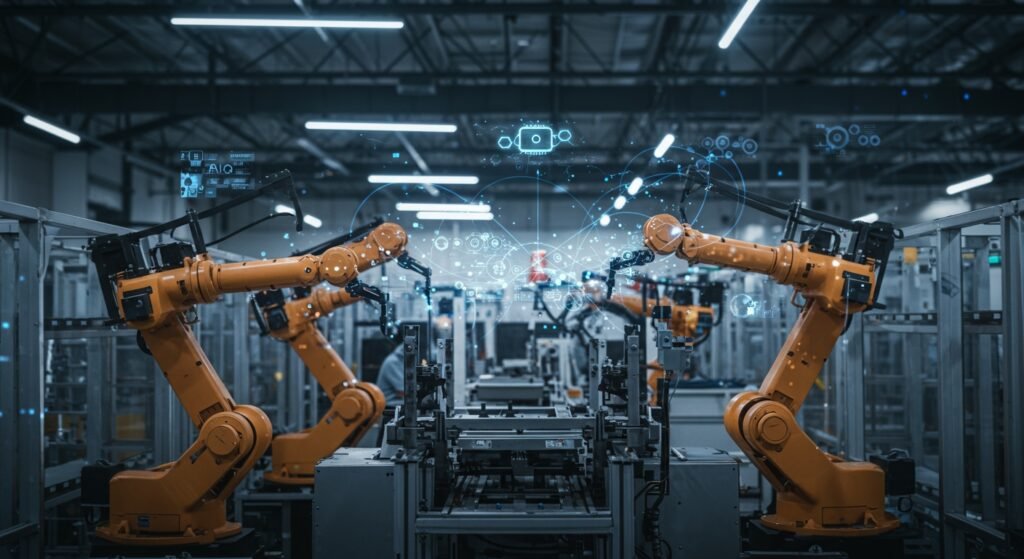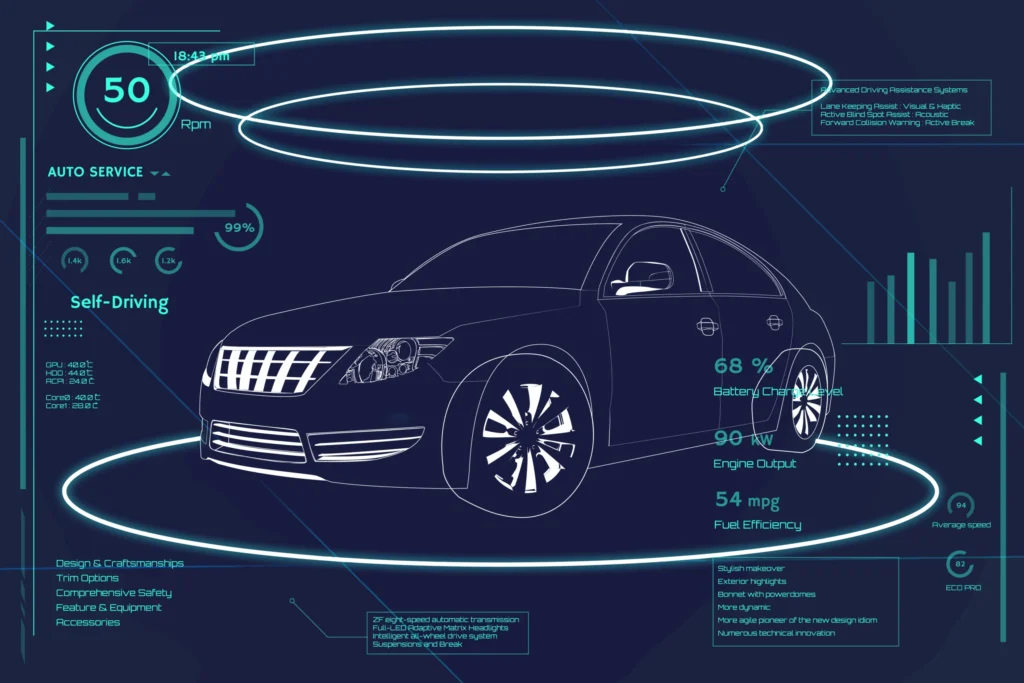The landscape of manufacturing is undergoing a profound transformation, ushering in an era often referred to as Smart Manufacturing or Industry 4.0. At the heart of this revolution is the critical discipline of Industrial Engineering in Smart Manufacturing, which plays an indispensable role in designing, optimizing, and managing complex systems. Traditional manufacturing relies on established processes, but smart manufacturing leverages advanced technologies like AI, IoT, and automation to create highly efficient, flexible, and responsive production environments. Industrial engineers are uniquely positioned to bridge the gap between technological innovation and practical application, ensuring these sophisticated systems deliver tangible value.
Table of Contents
- Introduction: Industrial Engineering’s Pivotal Role
- The Evolving Role of Industrial Engineering in Smart Manufacturing
- Key Technologies Driving IE in Smart Manufacturing
- Benefits and Challenges
- Future Trends in Industrial Engineering for Smart Manufacturing
- Conclusion
Introduction: Industrial Engineering’s Pivotal Role
As industries worldwide embrace digital transformation, the importance of Industrial Engineering in Smart Manufacturing cannot be overstated. Smart manufacturing integrates information and communication technologies (ICT) into every stage of the production lifecycle, from design to delivery. Industrial engineers are the architects of efficiency, using their expertise in process optimization, system design, and human factors to ensure that these complex, interconnected systems operate seamlessly. They apply analytical methods to identify bottlenecks, streamline workflows, and enhance productivity in ways that were previously unimaginable, directly contributing to competitive advantage.
The Evolving Role of Industrial Engineering in Smart Manufacturing
The traditional role of industrial engineering focused on efficiency and cost reduction in a more static environment. In smart manufacturing, this role expands significantly, requiring a deeper understanding of data analytics, cybersecurity, and advanced automation. Industrial engineers are now responsible for designing adaptive production systems that can respond dynamically to market changes and supply chain disruptions.
Optimizing Production Processes
At its core, industrial engineering aims to optimize processes. In smart manufacturing, this means leveraging real-time data from sensors and connected devices to continuously monitor, analyze, and improve production lines. Industrial engineers develop sophisticated models and simulations to predict system behavior, test improvements virtually, and implement changes with minimal disruption. Their focus is on creating highly flexible and reconfigurable manufacturing systems that can easily adapt to new product variants or changes in demand, minimizing waste and maximizing throughput.
Data-Driven Decision Making
Smart manufacturing generates vast amounts of data. Industrial engineers are crucial in transforming this raw data into actionable insights. They employ statistical analysis, machine learning algorithms, and predictive analytics to forecast demand, optimize resource allocation, and detect potential equipment failures before they occur. This data-driven approach allows for proactive decision-making, moving away from reactive problem-solving and towards a more predictive and preventive operational strategy. For more insights on data utilization, see our article on Data Analytics in Modern Manufacturing (internal link).
Key Technologies Driving IE in Smart Manufacturing
The rapid advancement of technology is the backbone of smart manufacturing. Industrial engineers must be proficient in understanding and integrating these technologies to design truly intelligent factories.
AI and Machine Learning
Artificial Intelligence (AI) and Machine Learning (ML) are revolutionizing how industrial engineers approach optimization. AI algorithms can identify complex patterns in production data, optimize scheduling, and even perform quality control with greater accuracy than human inspection. ML models can learn from past performance to continuously improve system efficiency, predict maintenance needs, and personalize production processes. Industrial engineers design and implement these AI-powered systems, ensuring their outputs are aligned with operational goals.
Internet of Things (IoT) and Cyber-Physical Systems
The Internet of Things (IoT) provides the sensory nervous system for smart factories, connecting machines, devices, and sensors across the production floor. Cyber-Physical Systems (CPS) take this a step further by integrating computational and physical components, allowing for real-time interaction and control. Industrial engineers design these interconnected networks, ensuring seamless data flow and robust communication infrastructure, which are vital for real-time monitoring and control of operations.
Robotics and Automation
Advanced robotics and automation systems are integral to improving efficiency and safety. Industrial engineers design robotic work cells, program automated guided vehicles (AGVs), and integrate collaborative robots (cobots) into existing human-centric workflows. Their expertise ensures that these automated systems are not only efficient but also ergonomically sound and safe for human interaction, optimizing the human-robot collaboration aspect of smart manufacturing.
Benefits and Challenges
Implementing smart manufacturing principles driven by industrial engineering offers numerous advantages but also presents significant hurdles.
Improved Efficiency and Cost Reduction
The primary benefits include dramatic improvements in operational efficiency, reduced waste, and lower production costs. By optimizing every aspect of the manufacturing process, from material flow to energy consumption, companies can achieve higher throughput with fewer resources. This translates directly into improved profitability and greater competitiveness in the global market.
Workforce Development and Skill Gaps
One of the significant challenges is the need for a highly skilled workforce capable of operating and maintaining these advanced systems. Industrial engineers often lead initiatives for workforce training and development, designing programs that equip employees with the necessary digital and analytical skills. Bridging the skill gap is crucial for the successful adoption of smart manufacturing practices. For more detailed insights, you can explore resources from the Institute of Industrial and Systems Engineers (IISE).
Future Trends in Industrial Engineering for Smart Manufacturing
The future of industrial engineering in smart manufacturing is dynamic and promising. Expect to see increased integration of digital twin technology for virtual testing and simulation, further advancements in prescriptive analytics for autonomous decision-making, and the expansion of sustainable manufacturing practices. Industrial engineers will continue to be at the forefront, driving innovation and shaping the factory of the future. The focus will be on even greater agility, hyper-personalization, and resilience against unforeseen disruptions.
Comparison: Traditional vs. Smart Manufacturing
To better understand the paradigm shift, let’s look at a comparison:
| Feature | Traditional Manufacturing | Smart Manufacturing |
|---|---|---|
| Production Model | Mass production, rigid lines | Flexible, customized, agile |
| Data Usage | Limited, historical, siloed | Real-time, integrated, predictive |
| Decision Making | Human-centric, reactive | Data-driven, proactive, autonomous support |
| Technology Focus | Mechanization, basic automation | AI, IoT, Robotics, Cloud, CPS |
| Optimization Scope | Individual processes | End-to-end supply chain, entire ecosystem |
Conclusion
Industrial Engineering in Smart Manufacturing is not just a sub-discipline; it’s a foundational pillar for the next generation of industrial operations. As manufacturing continues its rapid evolution, industrial engineers will remain the essential architects of efficiency, productivity, and innovation. Their ability to integrate cutting-edge technologies with human expertise ensures that smart factories are not only technologically advanced but also economically viable and sustainably managed. Embracing this evolving role is key for any organization aiming to thrive in the digital age of production.


